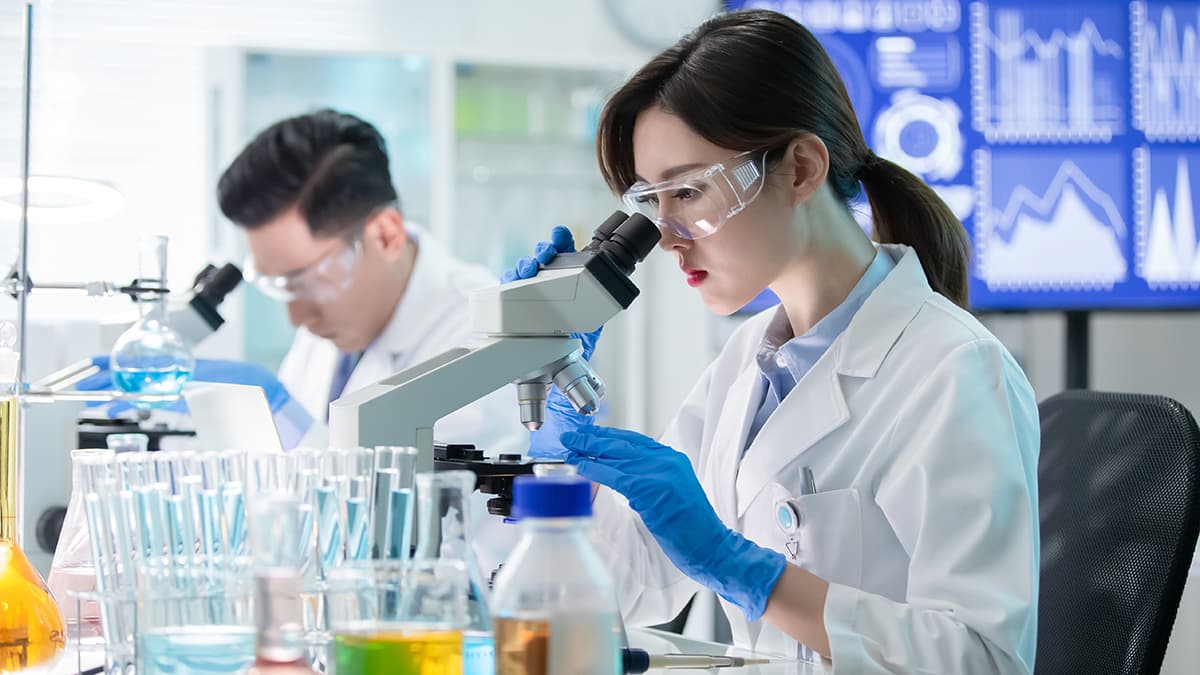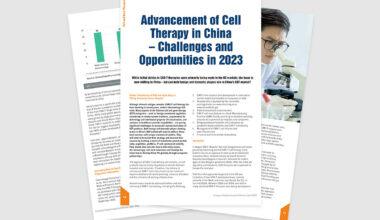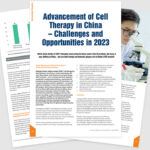
The Expansion of Cell Therapies in Asia-Pacific
Considerations for bringing advanced therapy studies into new regions

Cell and gene therapy (CGT) studies are rapidly gaining momentum in the Asia-Pacific region, fueled by growing patient demand and a thriving ecosystem of innovation. In China, the high incidence of solid tumors is driving an urgent need for advanced therapies, spurring the push for new treatment approaches. There has also been an increase in government and regulatory support for CGT trials, in conjunction with an increase in investments for these products to get to market. This expansion represents a significant opportunity for both drug developers and patients, while also presenting a new and diverse set of challenges for drug developers, particularly in clinical trial execution.
There is a race in the field to overcome these challenges to enable the success of CGT products in Asia-Pacific. Drug developers of all sizes are working to optimize each step in the clinical research process from site selection to complex logistics, managing evolving regulations, and patient recruitment and retention strategies. To find success among the competition, sponsors must have access to the necessary expertise and resources to approach this burgeoning market.
Site selection presents barriers and opportunities
As cell therapies expand in Asia-Pacific, areas with large hospitals are often the main hubs for innovation. Sponsors can bolster their reach to diverse patient populations by expanding beyond these city centers and by training research sites new to cell therapies in other parts of the country. When working with cells, sites need to understand the importance of keeping material traceability through chain of identity and keeping accurate records of custody. They also need to have the medical competencies to manage adverse events often associated with these therapies. Finding experienced experts to facilitate the drug development process from beginning to end is difficult, making training programs the ideal solution to expand advanced therapy development to more remote areas.
Training topics may include:
- Medical safety considerations
- Regulatory requirements
- Handling procedures of lymphodepleting agents
- Cell freezing and thawing procedures
Staff must have a deep understanding of the entire patient and cell journey to identify potential pitfalls and create a risk management plan. When sponsors are armed with this knowledge, it expedites the ability to expand and scale CGT development. The PPD™ clinical research business of Thermo Fisher Scientific recently launched its cell therapy SiteCoach pilot program to enable sites with knowledge on key principles in conducting cell therapy clinical trials, allowing sponsors greater patient accessibility.
Robust solutions for navigating evolving regulations and logistics
Cell therapy studies, particularly autologous ones, are complex to manage logistically and involve lengthy manufacturing processes in comparison to traditional therapies. Adhering to these regulatory and logistical requirements is often resource-intensive, requiring regional experts to navigate this landscape. For example, China-based sponsors often face uncertainty in reimbursement timelines, investigational product localization, foreign investment regulations and a high variance in health care provider capabilities. The government has also enacted strict trade compliance policies that limit genetic materials, such as patient cells, leaving and entering China.
Cross-border cell production processes often result in complex logistics due to:
- Extensive document preparation for import and export needing local consultancy
- Cell viability concerns requiring expedited shipment and under temperature-controlled conditions through specialized couriers
- Coordination among patient, clinical site, courier, and manufacturer or distribution center
The need for stringent cell handling requirements leads to a higher degree of logistical setbacks when failure is not an option for patients in need of timely treatments.
Bespoke approaches to patient recruitment and retention
Patient recruitment is another key consideration when expanding into the Asia-Pacific region. Common challenges for certain patient groups include long-distance travel to clinical sites, time away from work and limited access to knowledge about CGT trials. Regional and cultural differences may require tailored patient outreach approaches to accommodate varying sensitivity levels toward participating in clinical studies. In some areas patients welcome new treatment options and trust their physicians’ guidance, while others may view trial participation with skepticism. Factoring in cultural dynamics is key to enabling new therapy treatment success.
Patient retention presents its own set of challenges as CGT trials often carry heavy patient and caregiver burden. For example, if a patient is unable to arrive for the scheduled apheresis appointment to start an autologous cell therapy treatment, this could cascade to delays in downstream steps and affect the overall treatment regimen. Rescheduling after couriers have been arranged and manufacturing slots assigned creates challenges for all stakeholders across the treatment process. Clinical protocols and manufacturing processes need to be designed with a focus on patient-centricity to maximize clinical adoption.
Other common recruitment and retention issues within CGT development include:
- Minimal awareness of newer advanced therapies
- Literacy levels, language differences and limited medical historical records
- Limited access to therapies in income varying regions where travel or extended hospital stays aren’t feasible due to financial constraints
- Patient relocation preventing long-term follow-up studies
Patient advocacy groups (PAGs) are a valuable channel to gain the insight needed to aid both sponsors and patients in understanding common challenges associated with CGT studies.
PAG organizations can:
- Explain study protocol to potential participants and provide education on complex topics such as allogeneic therapies and stem cell-derived therapies to demystify potential ethical concerns
- Provide deep knowledge and local advocacy extending beyond disease manifestation and patient impact
- Provide community and cultural insights that outside organizations may not know within a short period of time
The right provider of clinical research solutions can enable successful expansion into Asia-Pacific
CGT expansion into Asia-Pacific represents a bright future in modern medicine but requires relevant expertise, cross-functional resources and culturally specific approaches to optimize supporting study development. It is imperative that drug developers select the right provider of clinical research solutions for trial management to overcome common challenges.
Thermo Fisher Scientific’s PPD clinical research business boasts experienced country leads that excel in spearheading efforts specific to their respective regions. Our local teams leverage community knowledge while incorporating a global perspective to stay at the forefront of the CGT field.
Our teams ensure support for all aspects of the drug development process, from infrastructure, project management and medical safety monitoring, to capturing high-quality data. We have successfully executed more than 135 CGT studies across a wide range of therapies in the past five years — providing sponsors with a high level of confidence in understanding local regulatory requirements so they can de-risk their clinical development journey.

